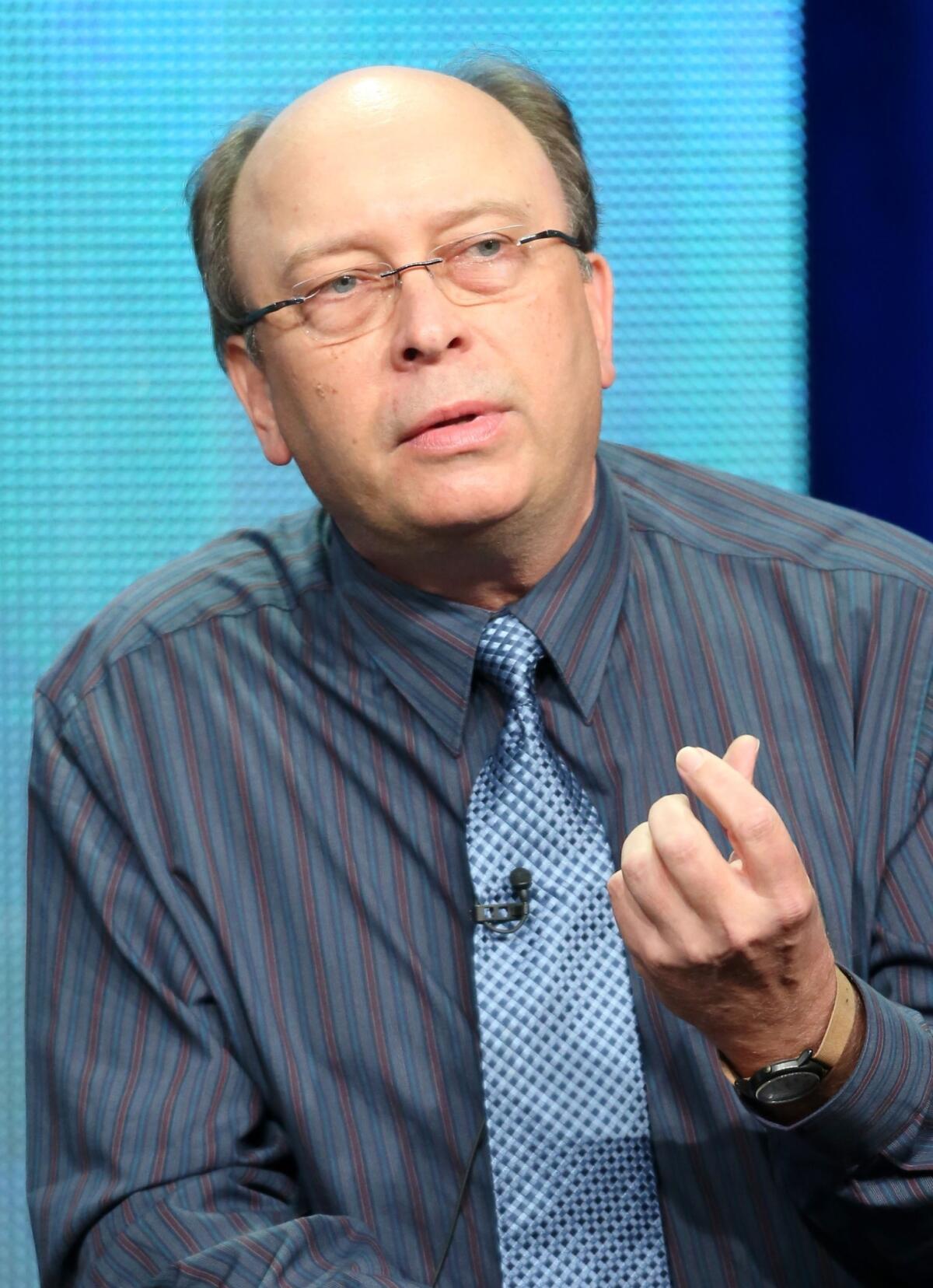TCA Press Tour: PBS’ ‘Cold Case: JFK’ opposes conspiracy theories

- Share via
Sorry, conspiracy theorists, modern forensic science shows that John F. Kennedy was likely killed by “one guy with a grudge and a gun,” said professor John McAdams during a panel for Nova’s new “Cold Case: JFK” on Wednesday at the Television Critics Assn. press tour in Beverly Hills.
McAdams, who wrote the book “JFK Assassination Logic: How to Think About Claims of Conspiracy,” was joined on the PBS panel by the show’s director, Rush DeNooyer, as well as firearms experts Lucien and Michael Haag, who conducted much of the scientific research used in the show to prove that a single bullet, could, in fact, have killed JFK and wounded Texas Gov. John Connally.
That supports the Warren Commission’s conclusion, long derided by hard-core JFK conspiracy theorists as the “Magic Bullet Theory.”
PHOTOS: Celebrities by The Times
Still, the folks behind “Cold Case: JFK” have little hope that they will change those people’s minds, no matter how good their science is.
And on its face, their science does sound good. The show’s cast of forensic scientists use 3-D crime scene reconstruction, virtual autopsies, high-speed cameras and other technologically advanced tools to re-examine one of the 20th century’s most notorious crimes.
The show posits that a forensic investigation filled with mistakes has fueled the vast array of conspiracy theories swirling around the assassination 50 years later. (Thanks to this anniversary, a host of JFK-related specials are lining up for release.)
“Can modern ballistics challenge long-held theories of how many shots were fired, and from where?” asks a dramatic voice in the show’s trailer.
Do people think you’re party poopers, one reporter asked the panel, adding that people enjoy conspiracy theories.
That’s because conspiracy theories make people feel safe, said McAdams.
“There are a lot of advantages in believing in a conspiracy theory. People are proud to say, ‘I’m skeptical, I don’t buy the official version,’” he said. “People don’t feel comfortable believing that small, trivial causes -- or sheer accident -- can change history. They’d rather believe that dark forces are at work.”
But strange coincidences can drastically change the course of history, he continued. “Just look at World War I. The archduke’s driver took a wrong turn, putting him in front of an assassin.”
“I think there’s something frightening about the idea of compete randomness -- that you could just walk out of the house and get hit by a bus,” said DeNooyer. “It’s more comforting to think there’s a big, vast plan involved.”
ALSO:
Stephen Colbert goofs on Daft Punk Hit ‘Get Lucky’
Stephen Colbert comes down with Royal Baby fever
‘Superheroes: The Never-Ending Battle’ a documentary made by and for fanboys
More to Read
The complete guide to home viewing
Get Screen Gab for everything about the TV shows and streaming movies everyone’s talking about.
You may occasionally receive promotional content from the Los Angeles Times.







